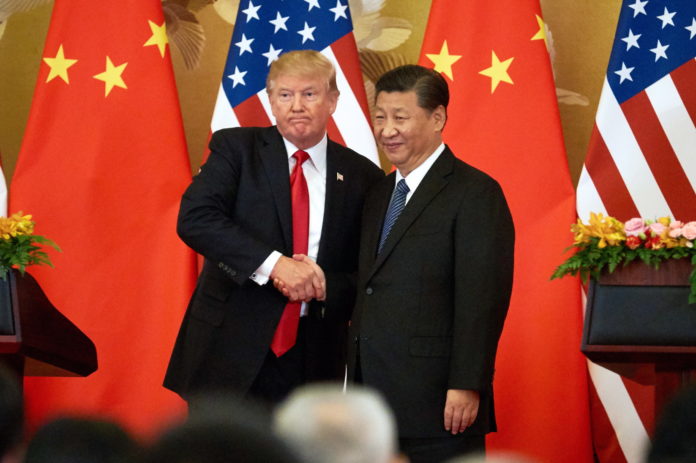After rising mightily over the last two sessions, stocks are dropping once again. Later this week, the U.S.-China trade talks are set to resume, and as of today, investors aren’t feeling too optimistic about the meeting.
The S&P and Dow are both down roughly 0.2%, while the Nasdaq Composite remains flat.
And it’s all because of a Sunday media report that suggests a “broad” trade deal might not happen. Vice Premier Liu He, China’s top trade negotiator, claims that industrial policy and government subsidy reform is off the table.
Which, incidentally, are two of President Trump’s top action items for this Thursday.
If China doesn’t budge, the U.S. won’t either – potentially taking the whole trade war back to square one. And at this point, I can’t blame the Chinese for holding out.
After all, Trump is facing an impeachment inquiry. And with 2020 looming, the Chinese Communist Party thinks that it can simply wait for Trump to be removed…
…Either via democratically held election or legislative body.
So, until that happens (or Trump wins in 2020), we might not see any real trade war progress.
And it appears as though investors are starting to realize that after buying-up equities late last week, even in the wake of two poor economic report cards from the Institute of Supply Management (ISM).
The September jobs report, however, didn’t disappoint. Released on Friday, the Bureau of Labor Statistics’ unemployment numbers came in at a 50-year low, while “real” unemployment – which accounts for non-workers and the underemployed – measured at its lowest level since December 2000.
Last month’s wage growth fell below analyst expectations, but all around, it was another satisfactory jobs report. At the very least, it was in no way indicative of recession – something that Goldman Sachs took note of earlier this morning.
“This downturn in manufacturing has been one of the longest on record and may start to stabilize, if not improve, somewhat soon,” said Peter Oppenheimer, Goldman’s chief global equity strategist.
“Our economists remain of the view that growth has slowed but is not close to recession. […] Assuming no recession, it is too early to expect this equity bull market to end in our view.”
And despite today’s renewed trade war pessimism, Goldman still expects the S&P 500 to climb another 150 points (5%) by year’s end.
“While avoiding a recession should support risky assets, the upside is somewhat limited by the prospects for continued relatively modest profits growth,” said Oppenheimer.
Some analysts – like Mislav Matejka, J.P. Morgan’s head of global and U.S. equity – even believe that the recent ISM data could prod Trump towards a more lenient trade deal.
“Given that trade uncertainty appears to have been the key driver of ISM weakness, this could end up pushing the US administration towards a truce with China, especially in light of the recent political developments,” Matejka said in a note this morning.
At this point, it’s all conjecture; we’ll find out the true effects of Thursday’s meeting after the Chinese trade contingency leaves Washington.
And though it might be fun to wax philosophical on what might happen– particularly in response to ISM reports – what’s absolutely certain is that the market will continue to tread water until the trade talks hit Wall Street.
Once they do, buckle up, because we’re likely in for a bumpy ride.
Potentially in either direction.








